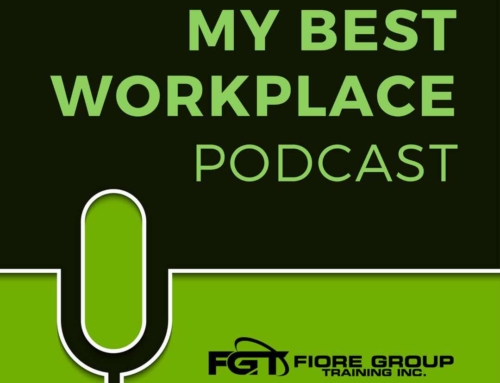As I mentioned in a recent blog, I had originally joined the London (UK) Metropolitan Police as the final stage in my plan to run away from my high school bully.
I also mentioned that, much to my surprise, the tactics used to take down any “bullies” did not involve the sort of hands-on moves I envisioned myself doing.
Instead, we focused on communication, and as it turned out, I spent much of my career using those skills.
So, let’s now fast forward to Canada where I found myself in another version of the police training experience. This time, the main focus was on compliance and regulatory training, related to the use of force and firearms tactics.
Interesting turn of events, eh?
While I was glad to be training in such a capacity, I was not happy to notice a lack of specific training on verbal communication skills.
True, there was time devoted to ‘tactical communication,’ but not nearly enough measures were taken, considering how much police officers actually spend communicating with people in their day-to-day job.
Is your workplace like that too?
Is there a huge gap between what is needed and what you get?
Perhaps you find yourself sitting at your desk reading this blog, years after joining your workplace, suddenly realizing, “we sure spent a great deal of time training for that, when what we really need is training on this.”
But maybe the problem is that you did receive proper training right off the bat but haven’t had any sort of refresher training since.
Or it may even be possible that your job has completely changed and evolved since that initial training.
Meanwhile, your boss is wondering why things aren’t going so well…or maybe you are that boss wondering this?
The training that comes to mind right away is Workplace Violence Prevention.
Do you and your co-workers feel confident at this very moment that you would know how to handle a situation if it were to arise?
We hope we never have to use that training, but when it comes down to it, will we break under panic or be able to recall clearly what the protocols are?
And how about the importance of preventing bullying and harassment and promoting respect?
Have we forgotten all about that too?
Employees spend a good deal of time at work being in relationships with those around them…yet how many of them have ever spent time being reminded how they should actually do that?
If you ever witness harassment at work, it wouldn’t be ideal to say: Weren’t you at that training five years ago? Don’t you know you can’t talk to people like that?
Wouldn’t you rather have just had a refresher course a few months ago so that perhaps the harassment wouldn’t even happen in the first place?
We’re creatures of habit, and unfortunately for some, their bad habits affect everyone else. Likewise, those with bad habits, might have trouble recalling what respect in the workplace looks like.
We can’t expect our co-workers to change their tune if the same melody has been playing for years.
So, as a leader what can you do?
Well, first consider the last time training has been implemented. Is it time to dust off that binder and remind everyone how to do their jobs?
It may not even be as seemingly important as bullying and harassment or violence prevention, but maybe it’s a chain of command that has become loose or tangled.
If those at the top aren’t doing their jobs correctly, it’s not going to trickle down well…
After all, we expect our police officers to know how to protect us at all times, both with hands-on and verbal training.
And while we may not all be in the business to ‘protect and serve” the community at large, don’t you think it’s still important to protect our own workplaces from violence or harassment?
Food for thought…






Leave A Comment